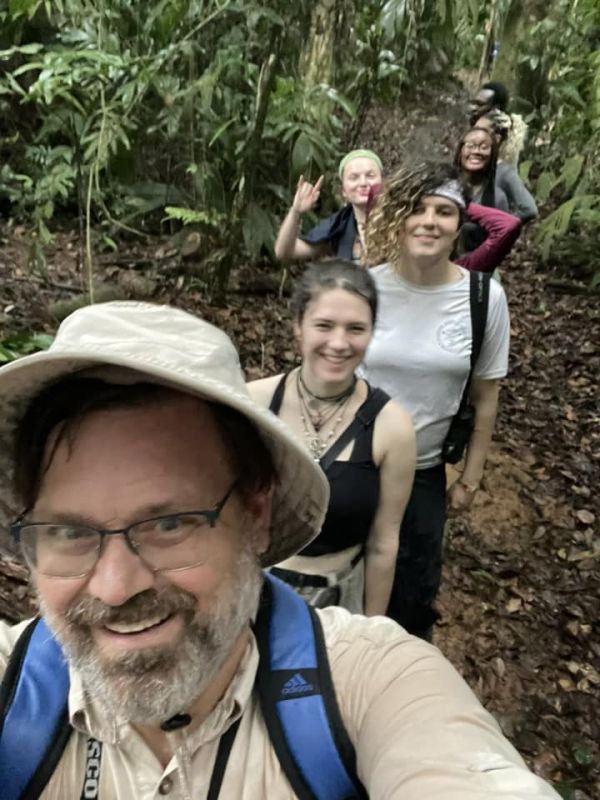Share this Story
January Term 2024: Students Dive into Hands-On Learning, Intensive Field Experiences
Class embarks on educational adventure to explore Costa Rica's rich biodiversity and geological wonders
University News | January 18, 2024
Deep in the jungles of Central America, a group of Virginia Wesleyan University students are getting some fascinating hands-on experiences, reinforcing what they have been learning in the classroom. Dr. Maynard Schaus’ EES 250 class is spending January Term investigating the habitats and geological features of Costa Rica, visiting a variety of destinations, including the La Selva Biological Station, Poas Volcano, Los Quetzales National Park, Las Cruces Research Station, Las Alturas Wildlife Sanctuary, lowland rain forests, and coastal habitats.
"Field experiences are central to the study of Earth and Environmental Sciences,” says Dr. Schaus, Professor of Biology and Environmental Science and Director of Accreditation, and Coordinator of Sustainability Management. “This travel course is truly transformative, as students explore diverse habitats and geological wonders, and also witness the intricate web of life firsthand. These hands-on encounters with nature reinforce classroom learning and instill a deep appreciation for the beauty and diversity of our planet. We tend to protect the things that we know and love; these experiences inspire students to do just that, allowing a passion for life-long sustainability to take root." 
Students have the opportunity to view a variety of wildlife in the field, including howler monkeys, toucans, sloths, Resplendent Quetzal, nesting hummingbirds, snakes, lizards, several species of frogs, and different types of arachnids. “We toured sustainable coffee, chocolate, and banana farms, and discussed agricultural practices that are more wildlife friendly,” says Dr. Schaus.
EES 250: Field Experiences in Earth and Environmental Sciences, is just one of many courses offered during January Term that allows VWU students the opportunity to get out of the classroom and into the environments they study. Students have the opportunity to take unique courses not typically offered during the regular semester, fulfill needed course requirements, and participate in intensive field experiences in neotropical ecosystems, geological sites, and various habitats.

